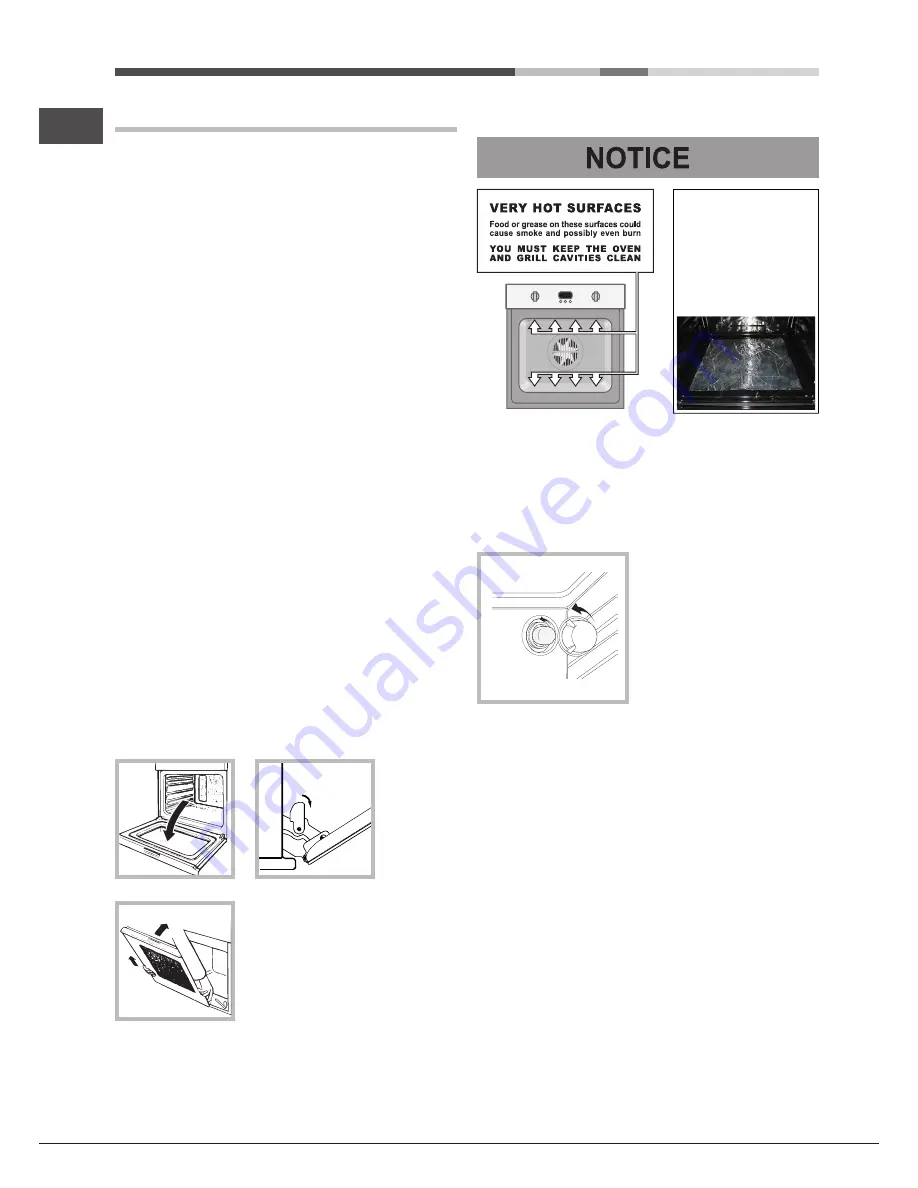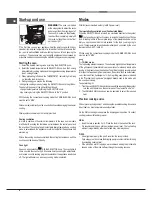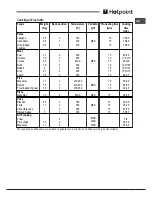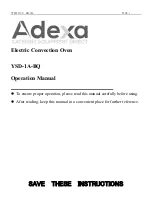
Maintenance and care
Switching the appliance off
Disconnect your appliance from the electricity supply before carrying out
any work on it.
Cleaning the appliance
• Slight differences in colour on the front of the oven are due to the different
materials used, i.e. glass, plastic or metal.
• Any shady areas resembling grooves on the oven door glass are caused
by reflections from the oven light.
• The enamel is branded at very high temperatures. This process may cause
colour variations. This is normal and will not affect appliance operation in
any way. The thin edges of the sheet metal cannot be entirely enamelled
and may therefore appear to be unfinished. This will not affect the rust
protection.
• The stainless steel or enamel-coated external parts and the rubber seals
may be cleaned using a sponge that has been soaked in lukewarm water
and neutral soap. Use specialised products for the removal of stubborn
stains. After cleaning, rinse and dry thoroughly. Do not use abrasive
powders or corrosive substances.
• The inside of the oven should ideally be cleaned after each use, while it is
still lukewarm. Use hot water and detergent, then rinse well and dry with
a soft cloth. Do not use abrasive products.
• All accessories can be washed like everyday crockery, and are even
dishwasher safe.
• We recommend that detergents are not sprayed directly onto the control
panel, but that a sponge is used instead.
!
Never use steam cleaners or pressure cleaners on the appliance.
Cleaning the oven door
Clean the glass part of the oven door using a sponge and a non-abrasive
cleaning product, then dry thoroughly with a soft cloth. Do not use rough
abrasive material or sharp metal scrapers as these could scratch the surface
and cause the glass to crack. For more thorough cleaning purposes, the oven
door may be removed:
1. Open the oven door fully (see diagram);
2. Lift up and turn the small levers located on the two hinges (see diagram);
Grip the door on the two external sides and
close it approximately half way.Pull the door
towards you lifting it out of its seat (see
diagram).
To replace the door, reverse this sequence.
WHEN USING THE MAIN OVEN
YOU MUST ENSURE THAT THE
BASE OF THE CAVITY IS NOT
COVERED WITH ALUMINUM
FOIL, UTENSIL OR ANY OTHER
FORM OF COVERING. FAILURE
TO DO THIS MAY RESULT IN
THE CAVITY BEING DAMAGED.
! ATTENTION
Inspecting the seals
Check the door seals around the oven regularly. If the seals are damaged,
please contact your nearest Service Centre (see Assistance). We recommend
that the oven is not used until the seals have been replaced.
Replacing the light bulb
To replace the oven light bulb:
1. Remove the glass cover of the
lamp-holder.
2. Remove the light bulb and replace
it with a similar one: Wattage 25 W,
cap E 14.
3. Replace the glass cover (see
diagram).
!
Do not use the oven lamp as/for ambient lighting.
Side and rear catalytic liners*
These are panels coated with a special enamel, which is able to absorb the
fat released by food as it cooks.
This enamel is quite strong, so that the various accessories (racks, dripping
pans, etc.) can slide along them without damaging them. White marks may
appear on the surfaces; these are not a cause for concern.
Nevertheless, the following should be avoided:
- scraping the enamel with sharp objects (a knife, for example);
- using detergents or abrasive materials.
10
GB






























